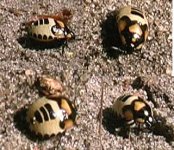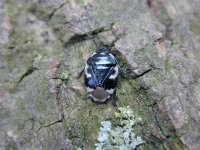jonafly
Well-known member
Hello,
Filmed this little friend the other day. It looks like a ladybird, but I don't think it is. I've through my guide, the complete site of www.koleopterologie.de but I can't find it. Does anybody know what it is?
Thank you,
André
Filmed this little friend the other day. It looks like a ladybird, but I don't think it is. I've through my guide, the complete site of www.koleopterologie.de but I can't find it. Does anybody know what it is?
Thank you,
André





